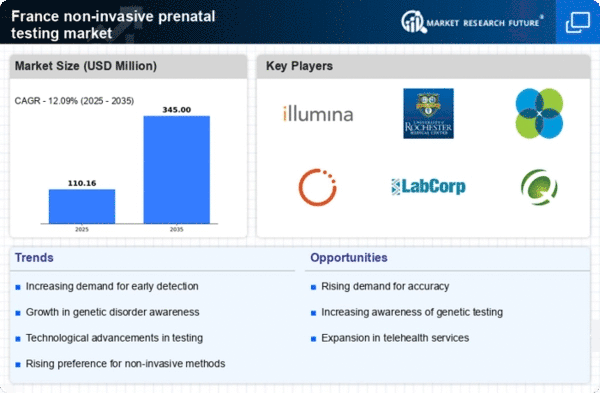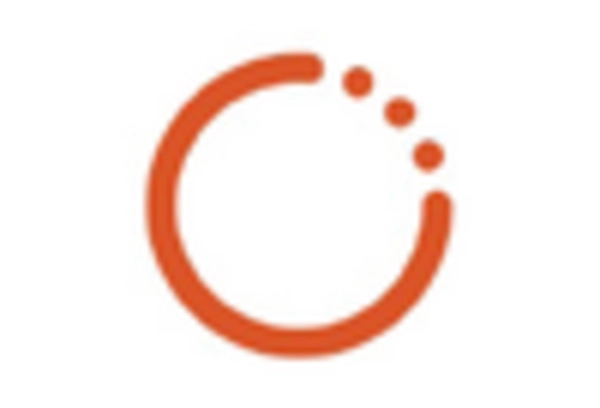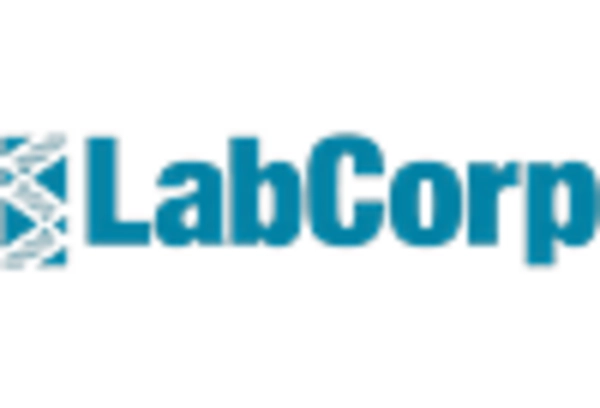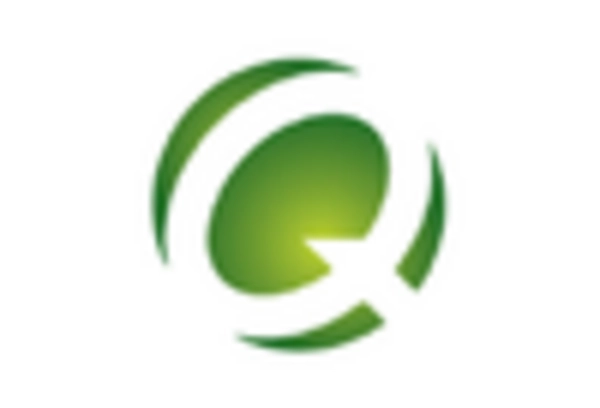Rising Birth Rates
The non invasive-prenatal-testing market in France is experiencing growth due to rising birth rates. Recent statistics indicate that the birth rate in France has shown a slight increase, with approximately 1.83 children per woman in 2023. This demographic trend is likely to drive demand for prenatal testing services, as more expectant parents seek to ensure the health of their unborn children. The increasing number of pregnancies creates a larger potential customer base for non invasive prenatal testing, which is perceived as a safer alternative to invasive procedures. As awareness of the benefits of early detection of genetic disorders grows, the non invasive-prenatal-testing market is expected to expand, catering to the needs of a growing population of expectant parents.
Technological Innovations
Technological innovations play a crucial role in shaping the non invasive-prenatal-testing market. Advances in genetic testing technologies, such as next-generation sequencing (NGS), have significantly improved the accuracy and reliability of prenatal tests. In France, the adoption of these technologies has led to a notable increase in the number of tests performed, with estimates suggesting a growth of around 15% annually. These innovations not only enhance the testing process but also reduce the time required for results, making it more appealing to expectant parents. As technology continues to evolve, the non invasive-prenatal-testing market is likely to benefit from improved methodologies and increased accessibility, further driving its growth.
Insurance Coverage Expansion
The expansion of insurance coverage for prenatal testing in France is a significant driver for the non invasive-prenatal-testing market. Recent policy changes have led to an increase in the number of insurance plans that cover non invasive prenatal tests, making them more affordable for expectant parents. This shift is likely to encourage more women to opt for these tests, as financial barriers are reduced. With insurance companies recognizing the value of early detection in preventing potential complications, the non invasive-prenatal-testing market is poised for growth. As more families gain access to these essential services, the overall demand for non invasive prenatal testing is expected to rise, reflecting a positive trend in maternal healthcare.
Increased Focus on Maternal Health
There is a growing focus on maternal health in France, which is significantly influencing the non invasive-prenatal-testing market. Public health campaigns aimed at raising awareness about the importance of prenatal care have gained momentum, encouraging expectant mothers to seek early testing. This heightened awareness is likely to lead to an increase in the uptake of non invasive prenatal tests, as they are viewed as essential for monitoring the health of both mother and child. Additionally, healthcare professionals are increasingly advocating for these tests as part of comprehensive prenatal care, further driving demand. The emphasis on maternal health is expected to bolster the non invasive-prenatal-testing market, as more women prioritize their health during pregnancy.
Healthcare Infrastructure Improvements
Improvements in healthcare infrastructure in France are positively impacting the non invasive-prenatal-testing market. The French government has invested significantly in healthcare facilities, ensuring that more hospitals and clinics are equipped to offer advanced prenatal testing services. This investment has led to an increase in the availability of non invasive prenatal tests, making them more accessible to a broader population. Furthermore, the integration of these services into routine prenatal care is becoming more common, with healthcare providers increasingly recommending non invasive testing as a standard practice. As a result, the non invasive-prenatal-testing market is likely to see a rise in demand, driven by enhanced access and improved healthcare delivery systems.
















